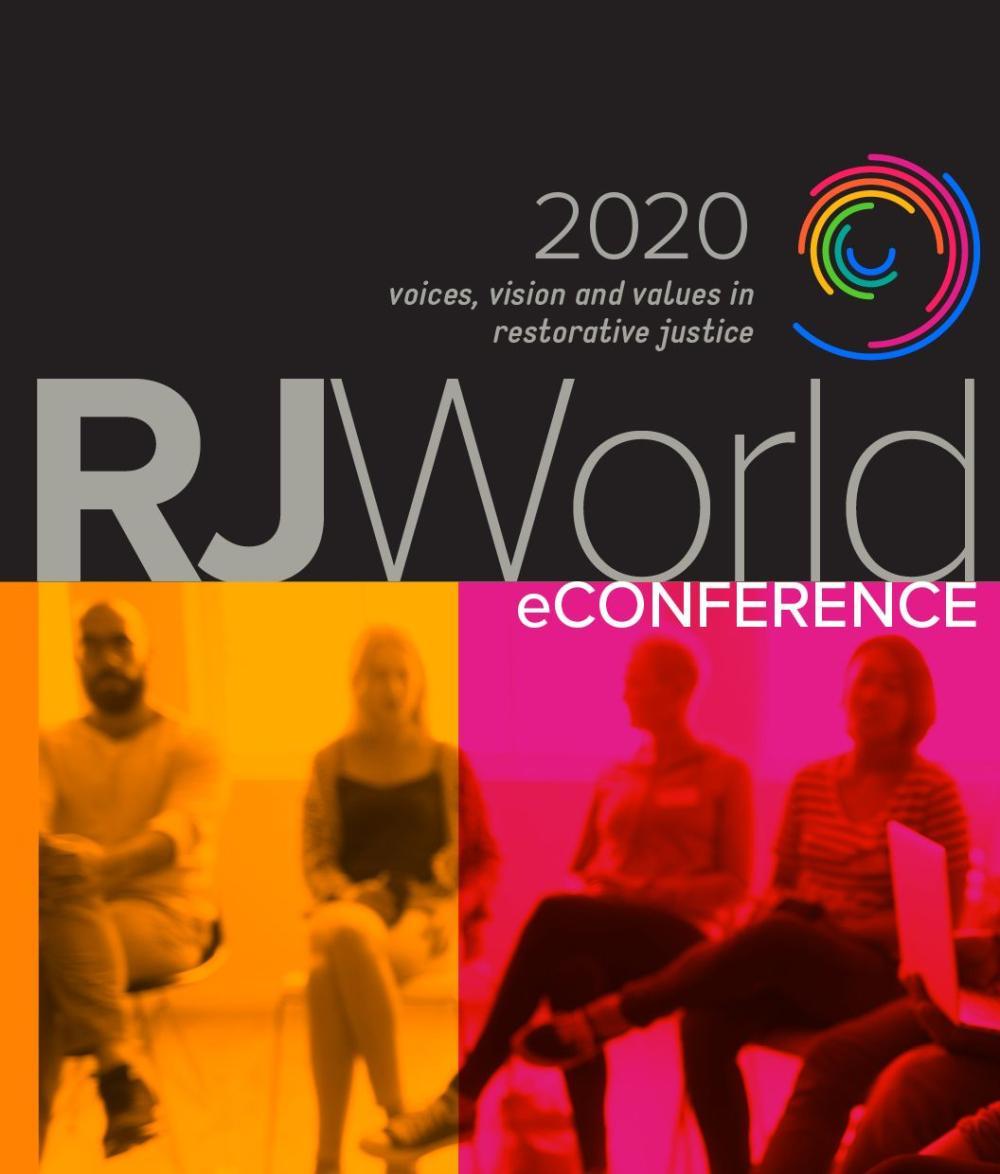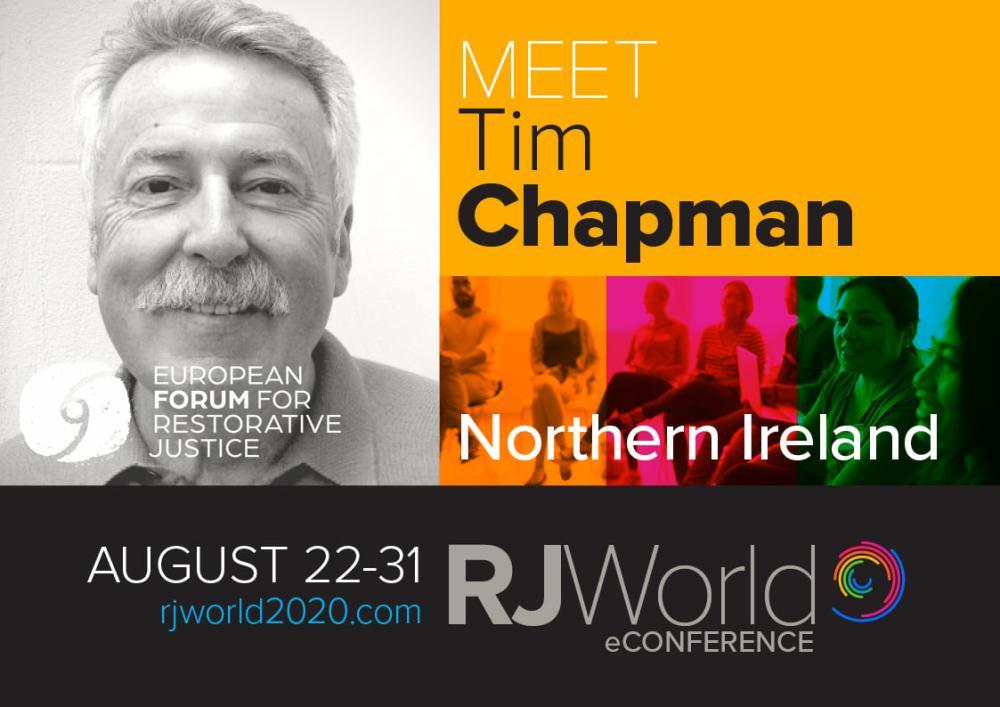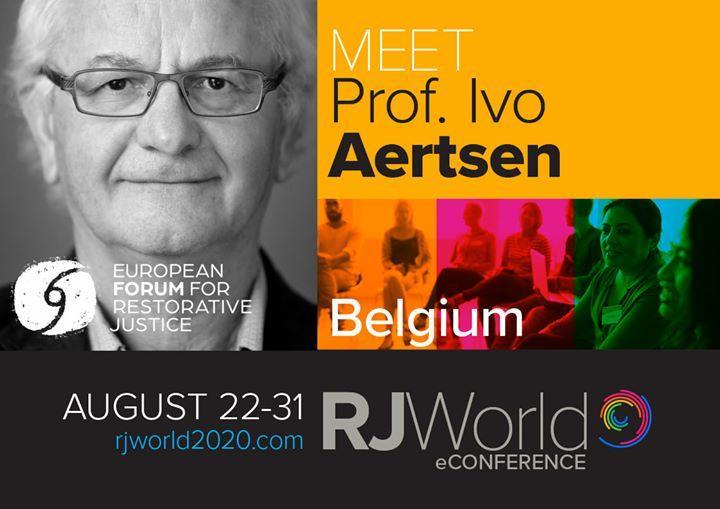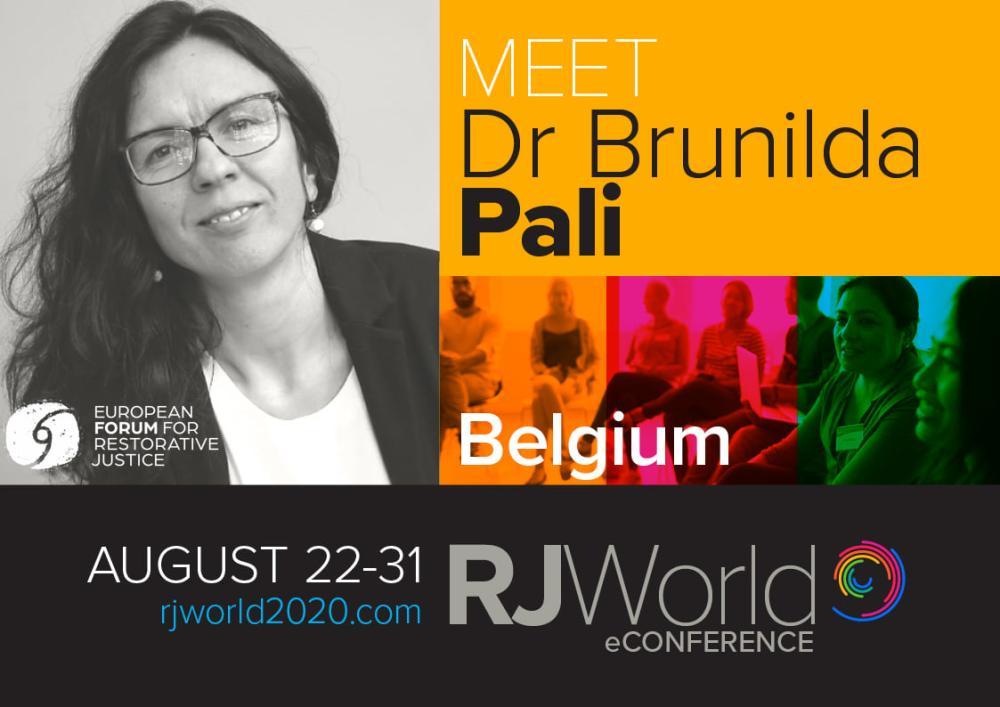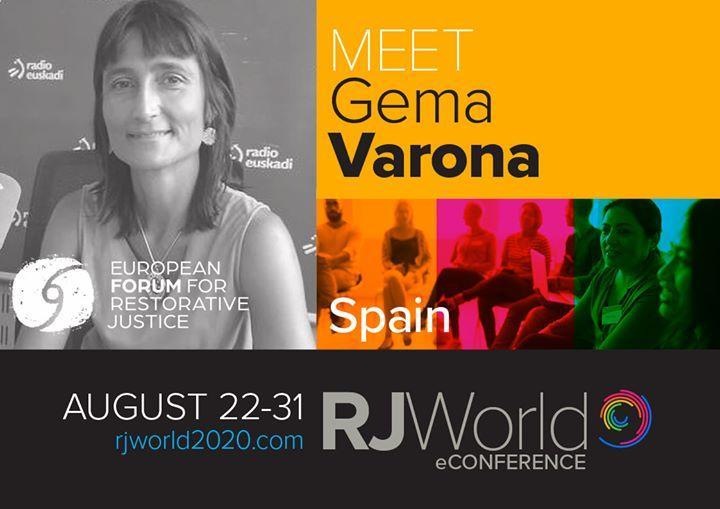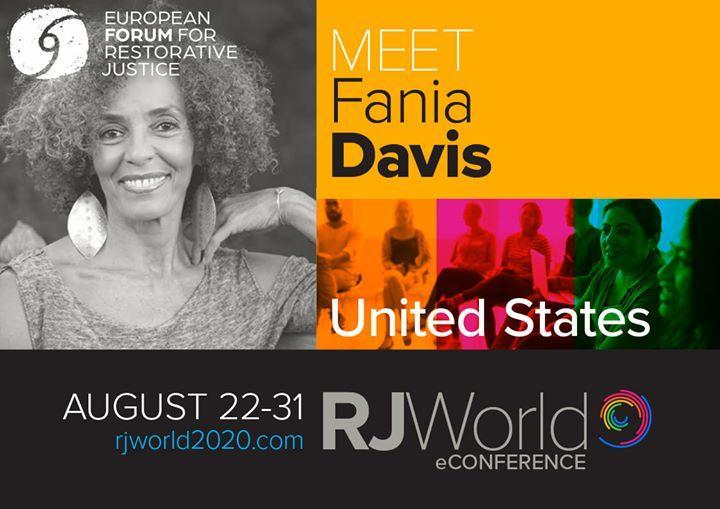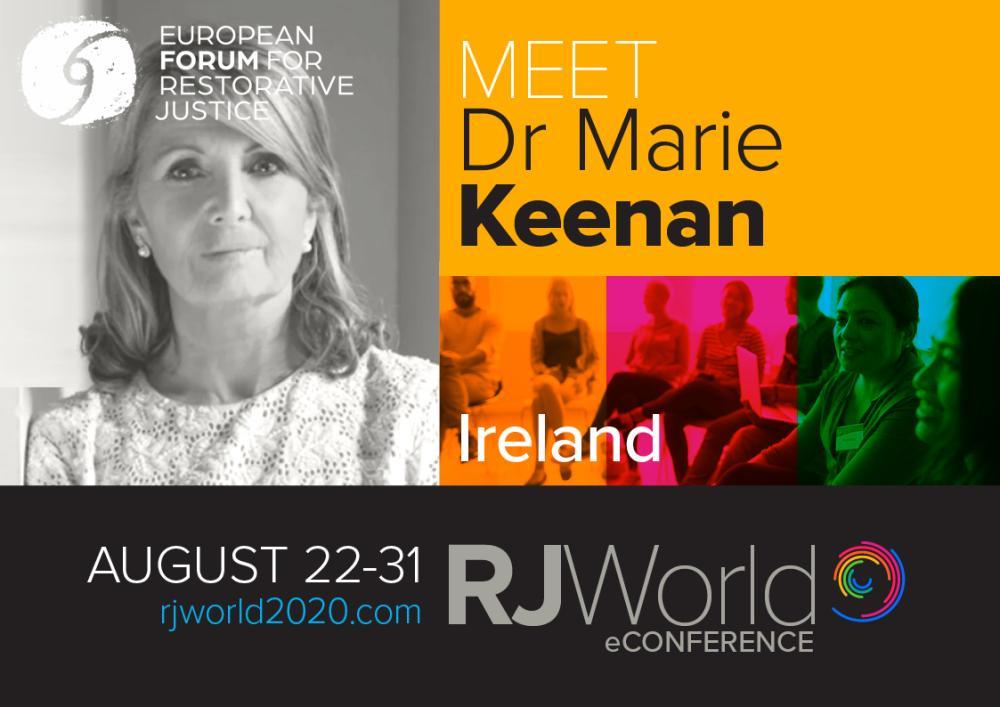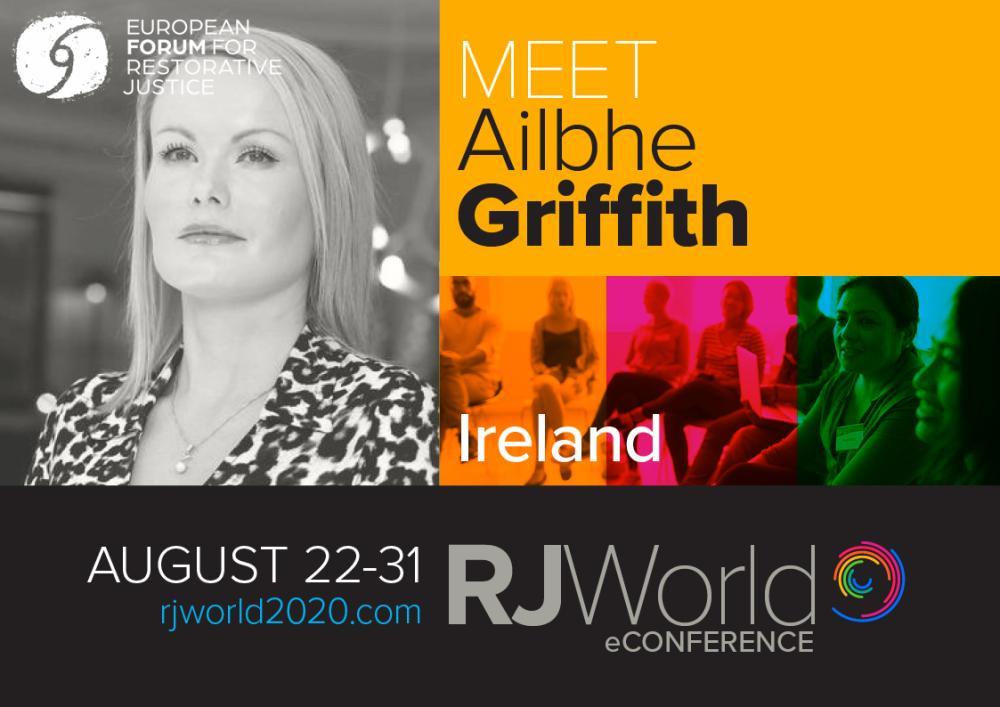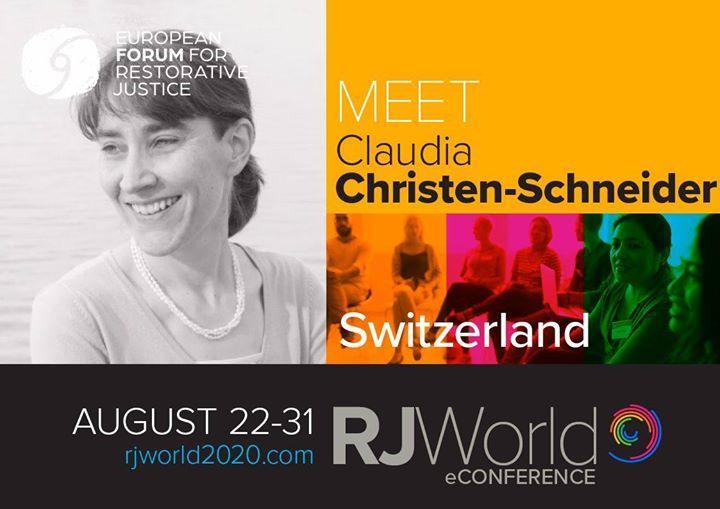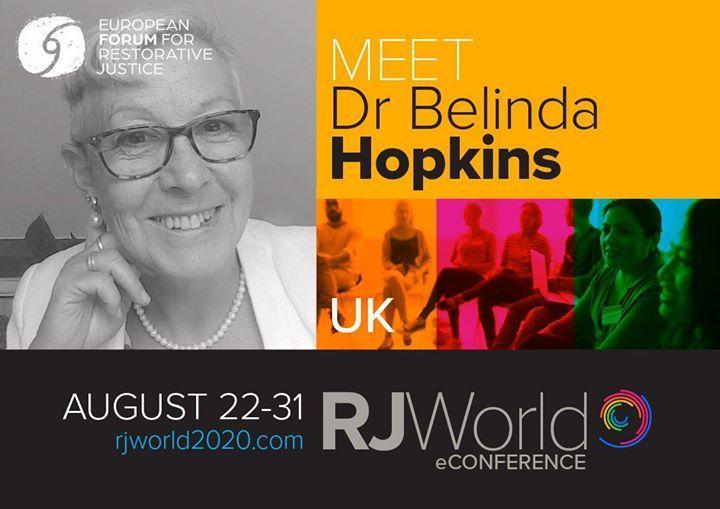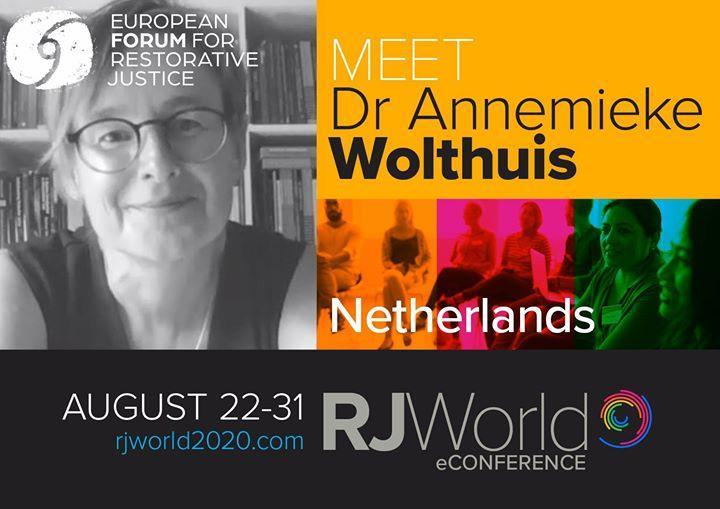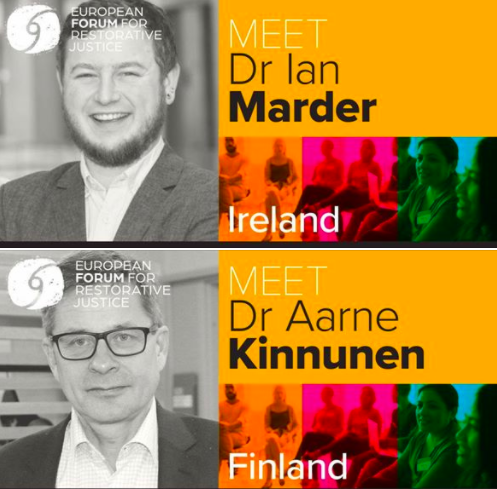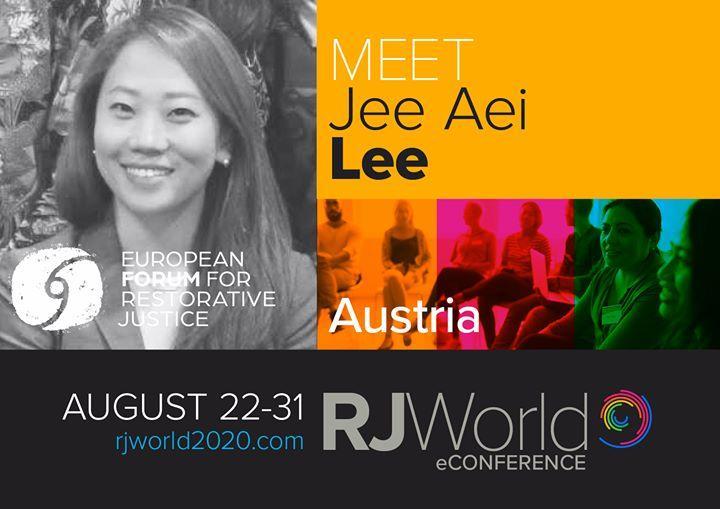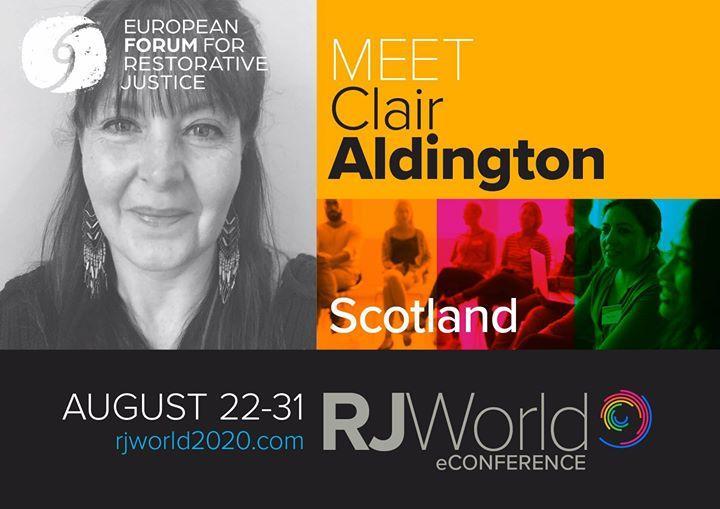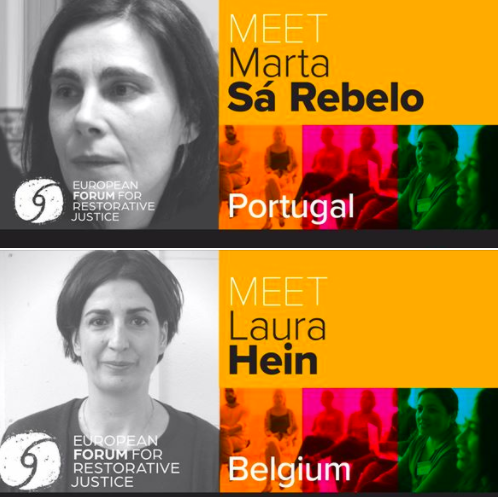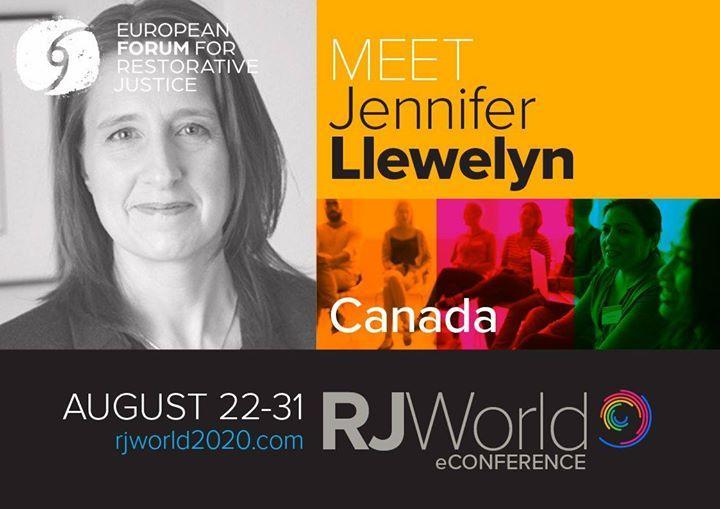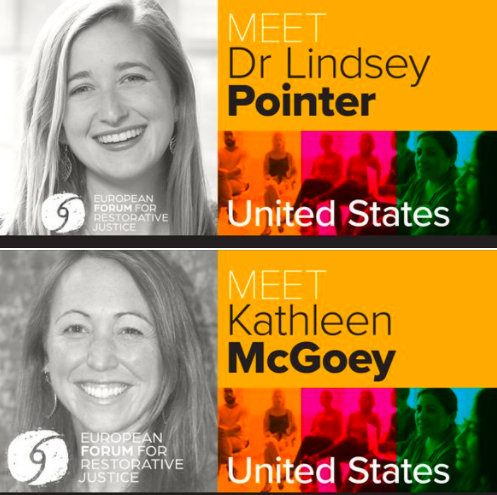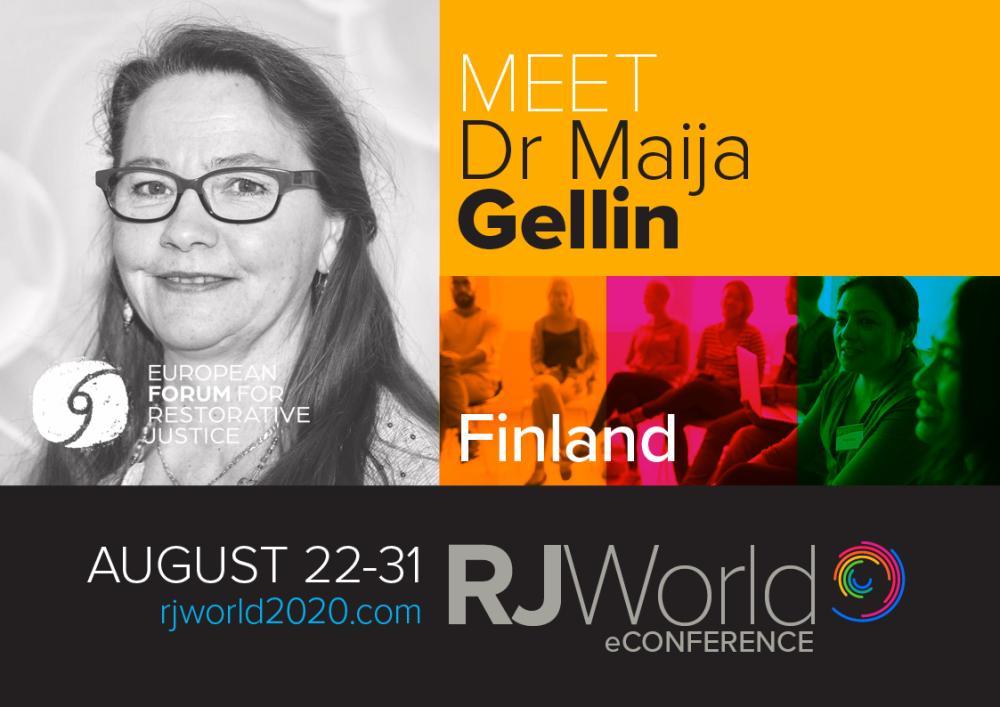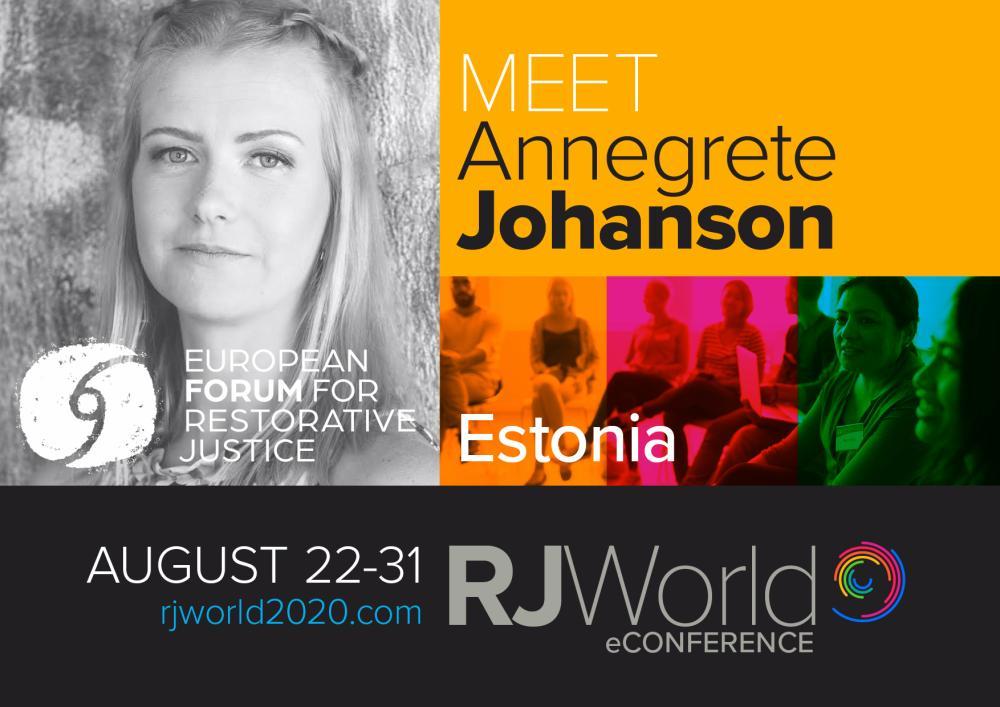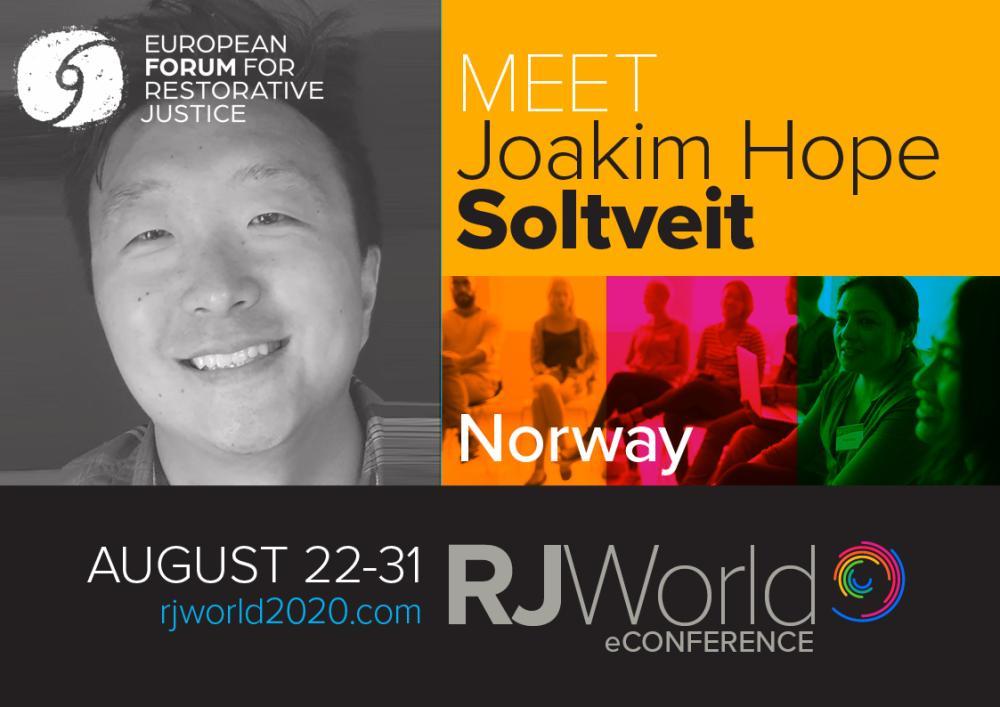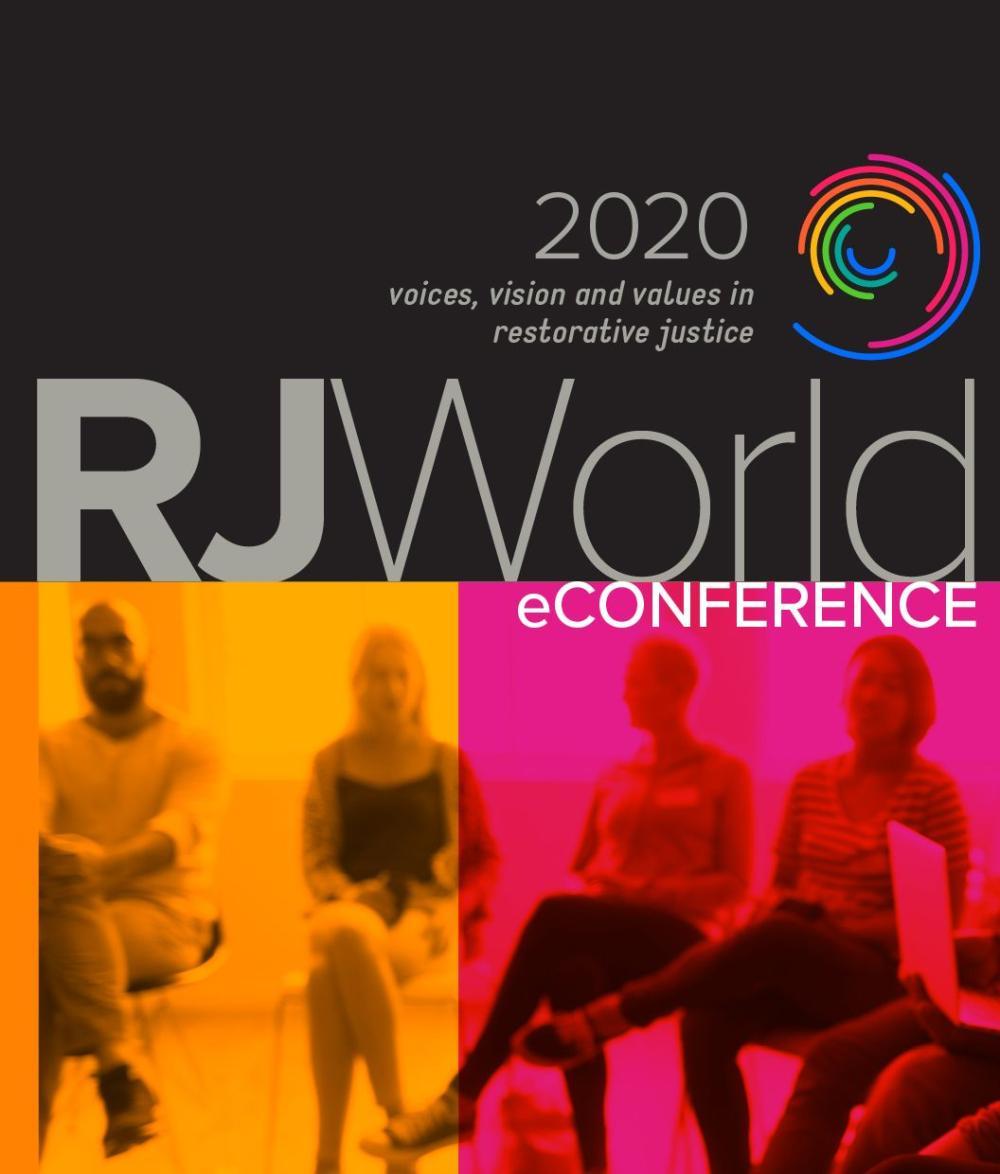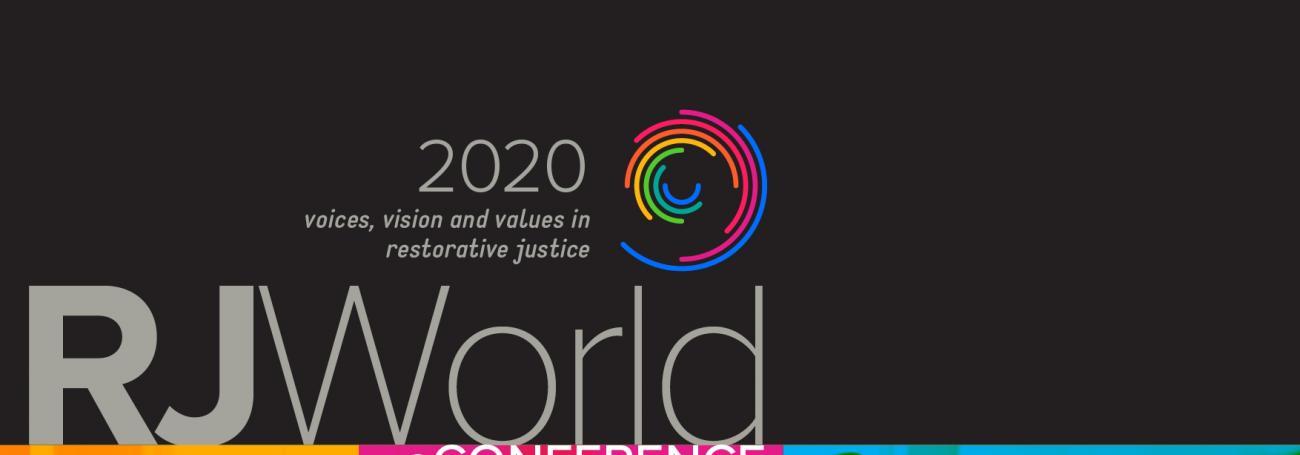
The European Forum for Restorative Justice (EFRJ), in cooperation with other international and national organisations in the field of restorative justice, takes part in the first RJWorld 2020 e-Conference on 22-31 August 2020. During 10 days, participants from all over the world can listen to inspiring presenters – facilitators / practitioners / teachers / researchers / artists – who are passionate about sharing insights and ideas in the realm of restorative justice and restorative practices in all sectors. The e-Conference is entitled "Vision, Voices and Values".
Topics include: Criminal Justice / Youth Justice / Prisons / Legal and Judicial / Environmental Justice / Victim support / Schools / Faith / Academic / Hate Crime / Extremism / Literature / Sexual Violence / Creative Arts / Training / Policy.

